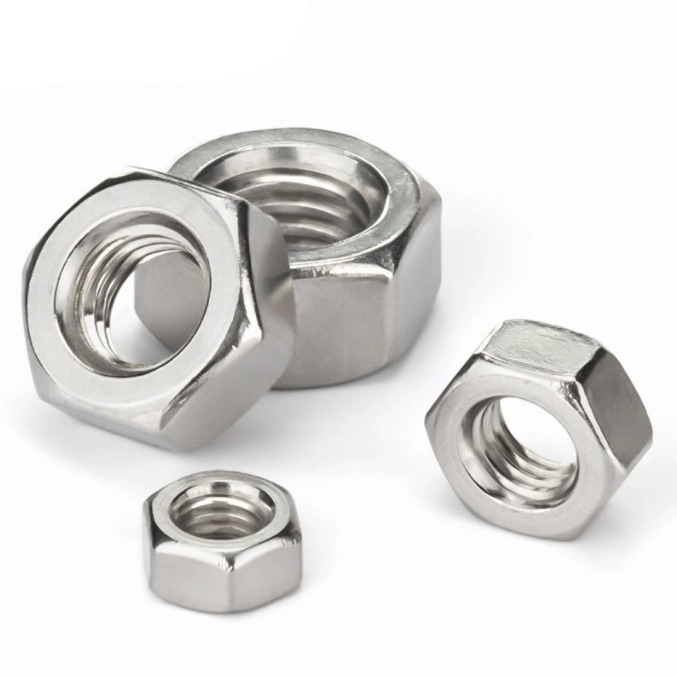

short self tapping screws
Des . 11, 2024 11:57 Back to list
short self tapping screws
Understanding Short Self-Tapping Screws A Comprehensive Guide
Self-tapping screws are a vital component in various construction and manufacturing projects, known for their efficiency and versatility. Among these, short self-tapping screws hold a unique position, offering specific advantages for particular applications. In this article, we will delve into the characteristics, benefits, and applications of short self-tapping screws, demonstrating their importance in today’s fast-paced construction and repair industries.
What Are Short Self-Tapping Screws?
Short self-tapping screws are designed to create their own hole as they are driven into materials such as metal, wood, or plastic. Unlike standard screws, which require pre-drilled holes, self-tapping screws feature sharp threads and a pointed tip that enables them to penetrate the material directly. This makes them particularly useful in situations where speed and efficiency are crucial.
The 'short' designation refers to the length of the screw, typically measuring less than one inch. Despite their smaller size, short self-tapping screws are highly effective for light-duty applications, providing a reliable fastening solution without the need for excessive material.
Advantages of Short Self-Tapping Screws
1. Reduced Labour Time One of the most significant benefits of using short self-tapping screws is the reduction in labour time. Since they eliminate the need for pre-drilling, workers can install them quickly, significantly speeding up assembly processes in manufacturing and construction.
2. Lightweight Design The shorter length makes these screws lighter than their long counterparts, making them easier to handle without sacrificing strength. They are ideal for applications where the overall weight of the fastened assembly is a concern.
3. Versatility Short self-tapping screws can be used in a variety of materials, including thin sheets of metal, plastics, and wood. This versatility allows them to be employed in multiple industries, such as electronics, automotive, and construction.
short self tapping screws

4. Cost-Effective These screws are generally more affordable due to their size and ease of manufacture. When large quantities are needed for a project, this cost-effectiveness can translate into significant savings.
Applications of Short Self-Tapping Screws
Short self-tapping screws are utilized in numerous applications across different sectors. Some of the most common uses include
- Electronics Due to their ability to secure components without causing damage, short self-tapping screws are ideal for assembling electronic devices where space is limited, and precision is key.
- Automotive In the automotive industry, these screws are often used for assembling body panels, securing lightweight components, and other areas where a secure yet non-intrusive fastening solution is required.
- Furniture Assembly Many modern furniture designs use short self-tapping screws to join components securely. They provide a clean finish and allow for easy disassembly if necessary.
- Quick Repairs For homeowners and DIY enthusiasts, short self-tapping screws offer a quick and easy way to repair furniture, fixtures, or appliances without extensive tools.
Conclusion
Short self-tapping screws represent a crucial innovation in fastening technology, embodying convenience, efficiency, and versatility. Their ability to simplify the assembly process while providing a reliable hold makes them an essential tool in various industries. As construction methods modernize and the demand for efficient solutions increases, the role of short self-tapping screws will undoubtedly continue to expand. Whether you are a professional contractor or a DIY enthusiast, understanding the capabilities and applications of these screws will enhance your toolkit and ensure your projects are completed effectively and efficiently.
Latest news
-
Premium Fasteners Manufacturer | AI-Driven Solutions
NewsAug.01,2025
-
Hot Dip Galvanized Bolts - Hebei Longze | High Strength, Corrosion Resistance
NewsAug.01,2025
-
High-Strength Hot Dip Galvanized Bolts - LongZe | Corrosion Resistance, Custom Sizes
NewsAug.01,2025
-
Best Self Tapping Screws for Drywall - Fast & Secure Installation
NewsJul.31,2025
-
High-Strength Hot Dip Galvanized Bolts-Hebei Longze|Corrosion Resistance&Customization
NewsJul.31,2025
-
Hot Dip Galvanized Bolts-Hebei Longze Metal Products|Corrosion Resistance&High Strength
NewsJul.31,2025

